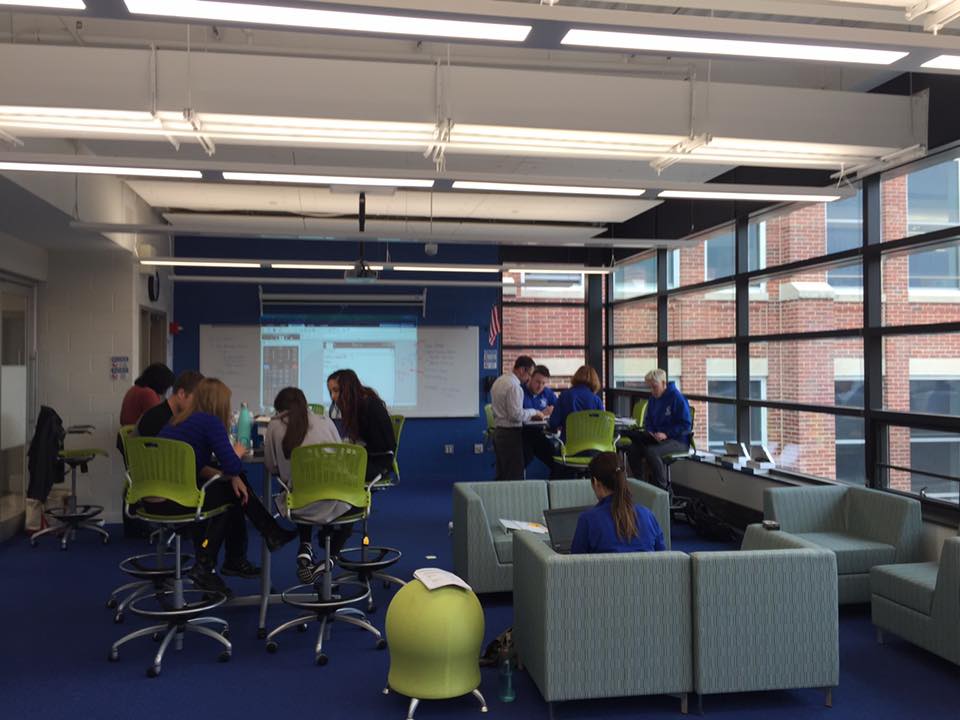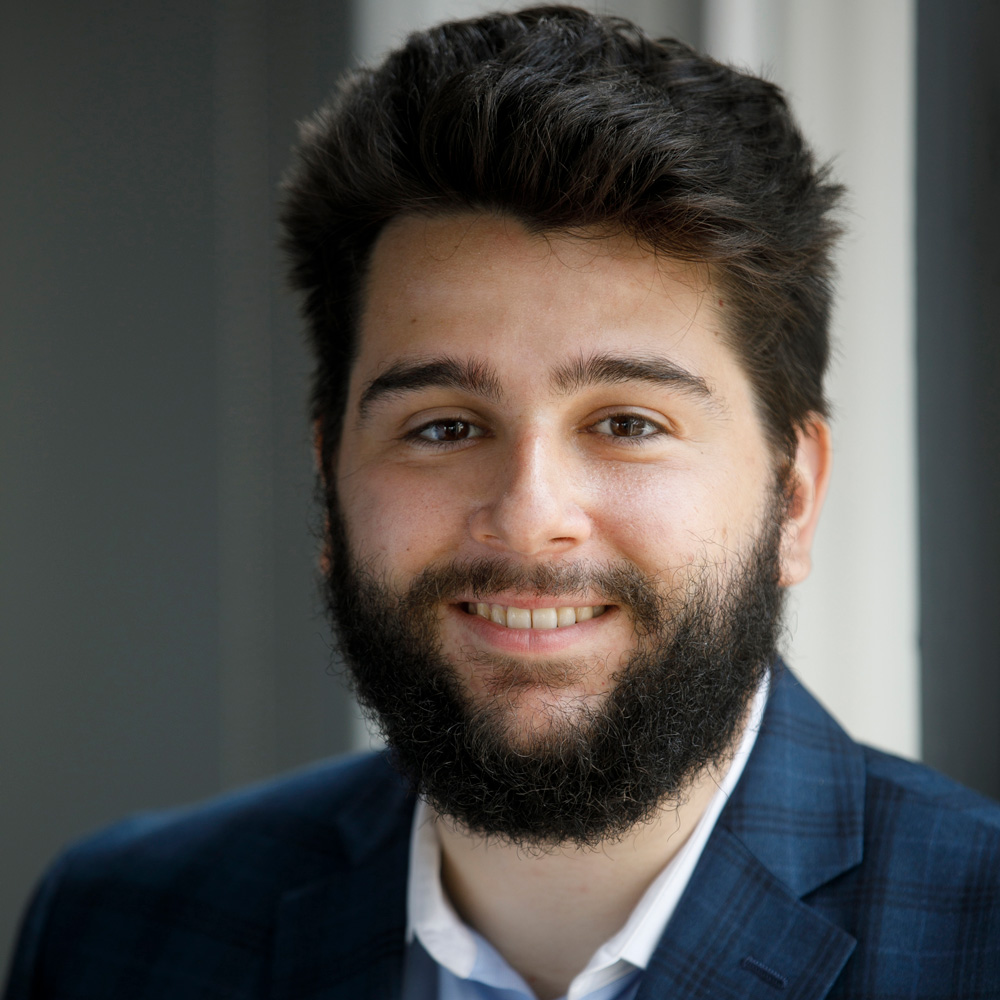
Science teachers rip District 113’s idea to condense lab time
Highland Park and Deerfield high school educators are rallying in opposition to a district proposal to potentially shift the majority of science courses to a single-period structure next school year.
Several educators addressed the Township High School District 113 School Board during its Feb. 20 meeting to protest what many described as a “unilateral,” “poorly executed” decision that they say lacked communication and stakeholder feedback.
District Superintendent Dr. Bruce Law, who is set to retire this summer, opened the Feb. 20 meeting by noting that “nothing is final yet” regarding the structure of science courses next school year while offering the board of education background on the matter.
District officials are not considering removing access to science labs entirely but rather debating how it will be administered, Law said.
According to Law, District 113 students currently have to set aside a class in their schedule in order to have a science lab. Those science labs typically meet once or twice per week, the district said. When students are not in their science lab, they are in a study hall period, which offers chances to get assistance and make up work, among other opportunities.
Shifting to a single-period structure for science classes would open up additional opportunities for students to enroll in elective courses, Law said.
“We should be considering that we’re in an era where an increasing number of demands are being placed on students,” he said.
“We really need to be concerned about whether our students are able to take a robust series of electives, so that they have a well-rounded education and they are able to pursue passions,” he later added.
A driving force behind the discussion is an upcoming staffing recommendation from the district’s administration, which Law said is set to be delivered in mid-March.
The staffing recommendation is a key piece of the puzzle in the district’s attempt to solve a projected budget deficit in fiscal year 2026.
According to Law, officials are “confident” that the district will have a balanced budget in fiscal year 2025 but are “worried” about the following year.
“We’ve discussed with the board how important it is in a year when we have 22 retirements that we’re able to solve the budget deficit for FY26 because we don’t want the next superintendent to be faced with a budget deficit in her first year,” Law said. “We’re trying to sort this out.”
Because the projected budget shortfall lines up with the nearly two dozen retirements, district officials feel there may be a solution to solving the budget deficit with options other than layoffs.
“My preference would be we have absolutely no layoffs,” Law said. “That is really, really important to me that if we have a budget situation that we have to address, and we are going to do that; we’ve talked to the board about it, we know what our directive is.”
Law told School Board members Feb. 20 that the District 113 Education Association has requested to impact bargain the issue. He noted that the district will discuss the topic with DEA representatives.
Board President Anne Neumann, serving in her first meeting at the helm following the resignation of Daniel Struck, expressed the board’s position of valuing cooperation among the DEA and administrators.
“It is definitely important from the board perspective that you and your team continue to work with the DEA to make sure that we do have an implementation plan and a communication plan that meets the needs of the students and their educational opportunities,” she said.
Teachers: ‘The impact will be felt by our students’
More than a dozen District 113 educators addressed the School Board during the public-comment portion of the meeting to highlight their disapproval of the potential change as well as the decision-making process that went into it.
Several educators stated during their comments that news from district officials regarding the potential shift was delivered to them via email in the middle of a school day with little-to-no previous notice on the topic.
Marty Esgar, the president of the DEA and a longtime science teacher at Deerfield High School, said a decision about the matter was made “in a spur of moment” and without “a single discussion with any stakeholder.”
“This was the most poorly executed decision ever and it’s a big, huge decision,” he said. “It’s not a light, minor little tweak.”
Michelle Newman, who also works in the science department at DHS, said the decision “was made unilaterally and the impact will be felt by our students when they attempt to pursue their interests beyond high school.”
“Taking away science lab time is not what is best for our students,” she said. “It’s a poor choice. You shouldn’t do it. History is watching.”
Part of the district’s science proposal is to keep the lab structure the same next school year for only advanced placement science courses. Educators also argued this was not an equitable solution.
Highland Park High School science teacher Kunal Pujara said the decision for single-period science classes “disenfranchises the majority of students, and our marginalized students will be negatively impacted the most.”
“The majority of science students should not be left behind without lab experiences to enhance critical thinking and problem-solving skills that are important in all areas of life beyond high school,” he said. “Your decision to give additional lab time to only AP science courses creates more inequity that diversity, equity and inclusion initiatives are trying to remedy.”
Deerfield science teacher Jeff Hoyer argued that the shift could “lower the chances of our graduates to compete in colleges and their careers” due to decreased lab time.
He also urged the board to “regain the respect” he said the district once had.
“District 113 used to be one of the most desirable places to work in the state, but unfortunately, District 113 has been embroiled in nearly a constant stream of turmoil for the past 10 or 15 years,” he said. “This has seriously tarnished our reputation.”
While the comments of educators at the meeting made it all but seem that the move is a foregone conclusion, Law stressed that there is no final decision yet.
“Nothing is final yet; this is really important,” Law said. “This is, at this point, really the direction we’re going in and it’s really a proposal for how we’re going to move in the future.”
The Record is a nonprofit, nonpartisan community newsroom that relies on reader support to fuel its independent local journalism.
Subscribe to The Record to fund responsible news coverage for your community.
Already a subscriber? You can make a tax-deductible donation at any time.

Martin Carlino
Martin Carlino is a co-founder and the senior editor who assigns and edits The Record stories, while also bylining articles every week. Martin is an experienced and award-winning education reporter who was the editor of The Northbrook Tower.


